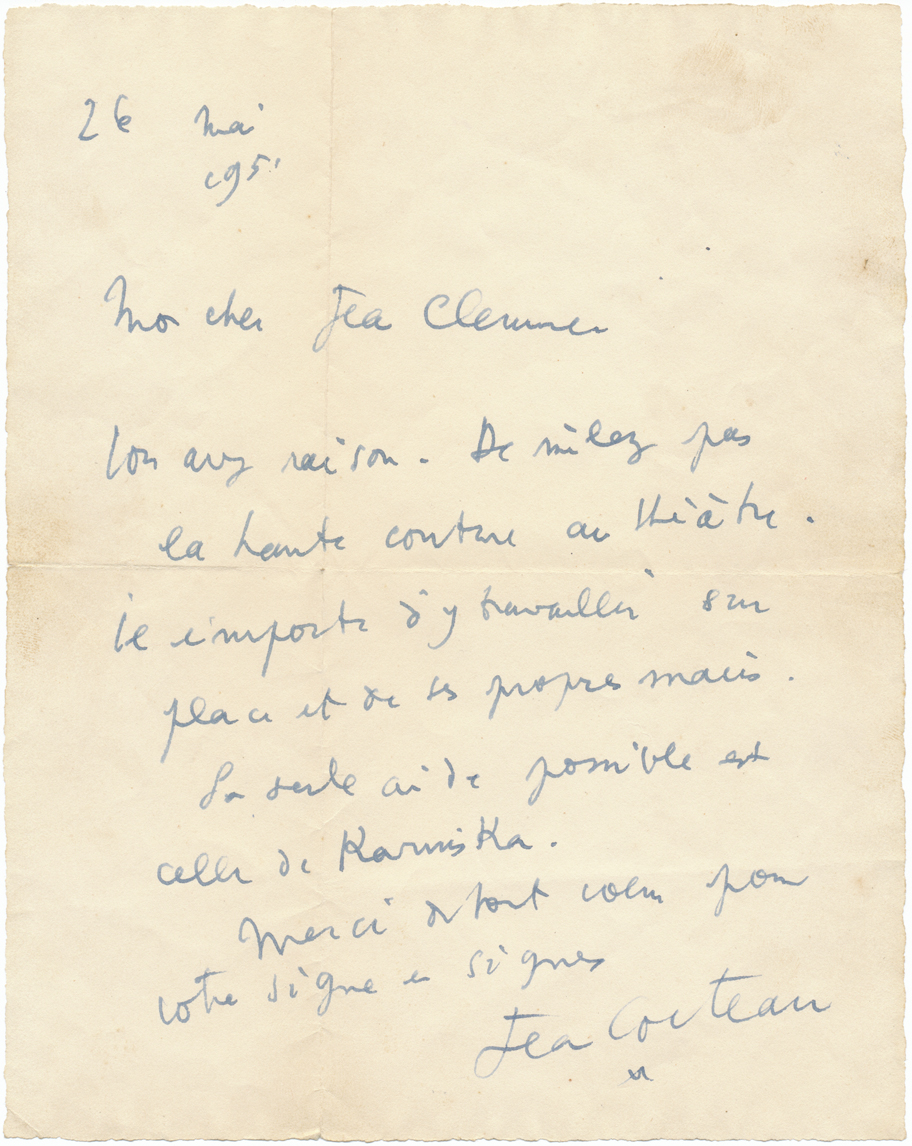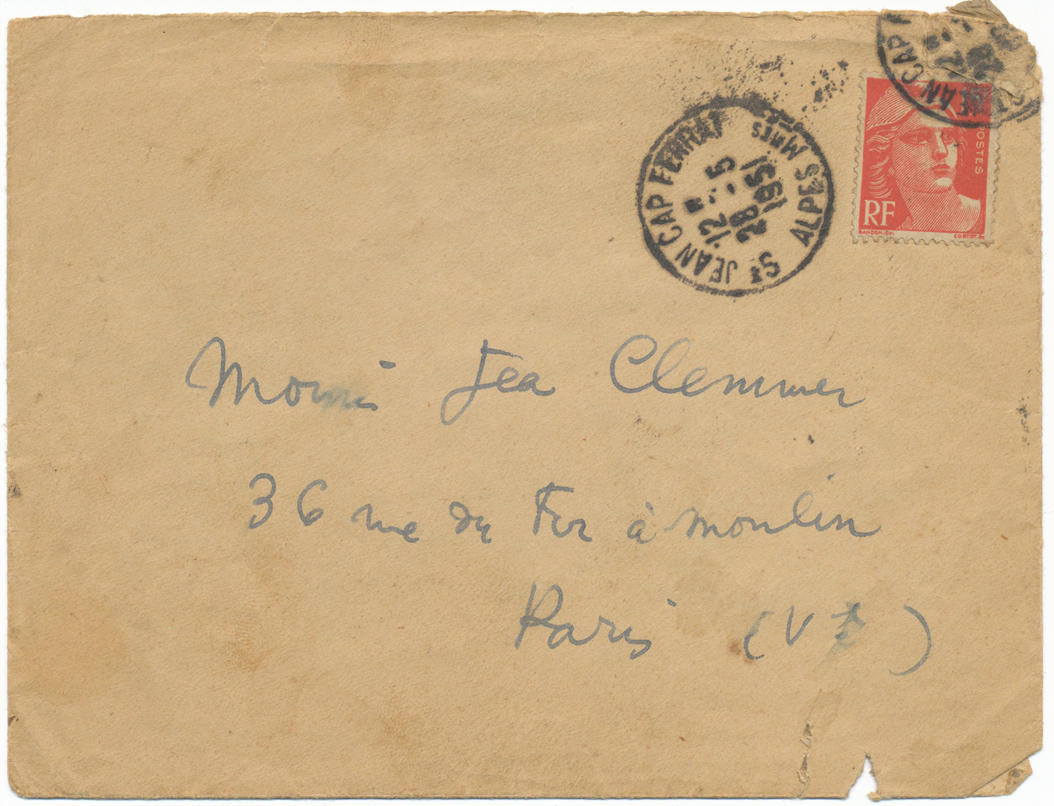Jean Cocteau
Jean Cocteau
Autograph Letter Signed to Jean Clemmer - 1951
Autograph Letter Signed to the artist and photographer Jean Clemmer (a close friend of Salvador Dali), with envelope postmarked St. Jean Cap Ferrat in the French Alps, May 26, 1951; in French:
Mon cher Jean Clemmer,
Vous avez raison. Ne mêlez pas la haute couture avec le théâtre. Il importe d’y travailler sur place avec ses propres mains. La seule aide possible est celle de Karniska.
Merci de tout cœur pour votre signe. Signe,Jean Cocteau
Approximate translation, as some words are unintelligible:
My dear Jean Clemmer,
You are right. Do not mix haute couture with theatre. It is important to work on the set with your own hands. The only possible help is to go to Karinska. Thank you from my heart for your gesture. Signed,
Jean Cocteau
In his advice to Klemmer, Cocteau mentions Barbara Karinska, the prominent Russian costumer who designed the costumes for Cocteau’s plays, as well as collaborating with such artistic luminaries as George Ballanchine, Balthus, Joan Miro, André Derain, and many others.
JEAN MAURICE EUGÈNE CLÉMENT COCTEAU (1889-1963) was a French poet, novelist, dramatist, designer, boxing manager, playwright and filmmaker. Along with other Surrealists of his generation (Jean Anouilh and René Char for example) Cocteau grappled with the “algebra” of verbal codes old and new, mise en scène language and technologies of modernism to create a paradox: a classical avant-garde. His circle of associates, friends and lovers included Jean Marais, Henri Bernstein, Édith Piaf, whom he cast in one of his one act plays entitled Le Bel Indifferent in 1940, and Raymond Radiguet.
Cocteau’s work was played out in the theatrical world of the Grands Theatres, the Boulevards and beyond during the Parisian epoque he both lived through and helped define and create. His versatile, unconventional approach and enormous output brought him international acclaim.
In the 1930s, Cocteau had an unlikely affair with Princess Natalie Paley, the beautiful daughter of a Romanov grand duke and herself a fashion-plate, sometimes actress, model, and former wife of couturier Lucien Lelong. She became pregnant. To Cocteau’s distress and Paley’s life-long regret, the fetus was aborted. Cocteau’s longest-lasting relationships were with the French actors Jean Marais and Edouard Dermit, whom Cocteau formally adopted. Cocteau cast Marais in The Eternal Return (1943), Beauty and the Beast, Ruy Blas (1947) and Orpheus (1949).
In 1940, Le Bel Indifférent, Cocteau’s play written for and starring Édith Piaf, was enormously successful. He also worked with Pablo Picasso on several projects and was friends with most of the European art community. He struggled with an opium addiction for most of his adult life and was openly gay, though he had a few brief and complicated affairs with women other than Paley (including, some say, Piaf). He published a considerable amount of work criticizing homophobia.
Cocteau’s films, most of which he both wrote and directed, were particularly important in introducing Surrealism into French cinema and influenced to a certain degree the upcoming French New Wave genre.
Cocteau is best known for his 1929 play Les enfants terribles, the 1948 film Les parents terribles, and the films Beauty and the Beast, (1946) and Orpheus (1949).
All Vintage Memorabilia autographs are unconditionally guaranteed to be genuine. This guarantee applies to refund of the purchase price, and is without time limit to the original purchaser. A written and signed Guarantee to that effect accompanies each item we sell.


